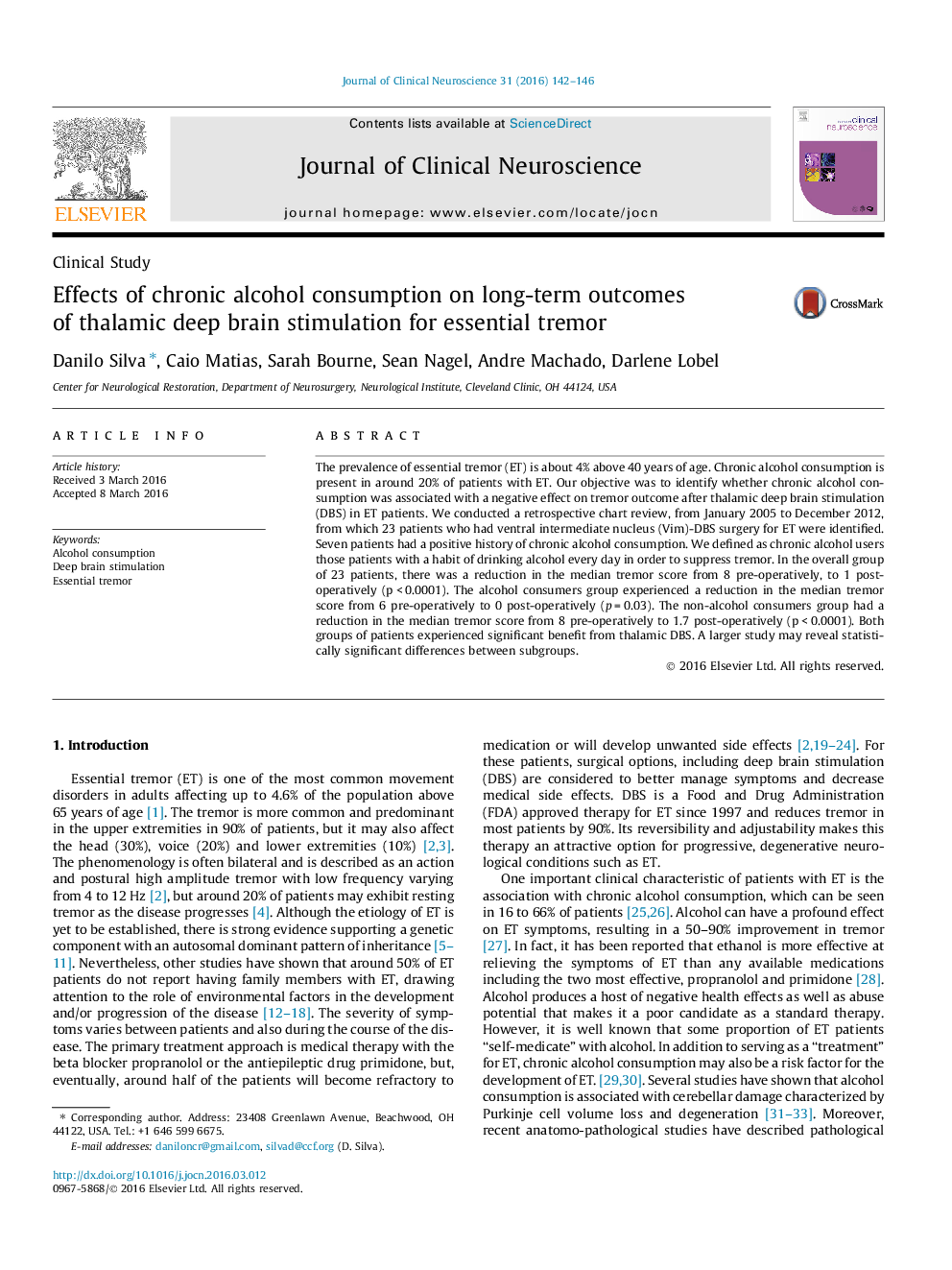| Article ID | Journal | Published Year | Pages | File Type |
|---|---|---|---|---|
| 3058102 | Journal of Clinical Neuroscience | 2016 | 5 Pages |
•This is the first study addressing the association between chronic alcohol consumption and tremor outcome after deep brain stimulation.•Patients with and without history of chronic alcohol consumption had favorable outcomes after deep brain stimulation.•History of chronic alcohol consumption did not influence results of deep brain stimulation in patients with essential tremor.•This new information can be used to counsel patients with essential tremor before undergoing deep brain stimulation.
The prevalence of essential tremor (ET) is about 4% above 40 years of age. Chronic alcohol consumption is present in around 20% of patients with ET. Our objective was to identify whether chronic alcohol consumption was associated with a negative effect on tremor outcome after thalamic deep brain stimulation (DBS) in ET patients. We conducted a retrospective chart review, from January 2005 to December 2012, from which 23 patients who had ventral intermediate nucleus (Vim)-DBS surgery for ET were identified. Seven patients had a positive history of chronic alcohol consumption. We defined as chronic alcohol users those patients with a habit of drinking alcohol every day in order to suppress tremor. In the overall group of 23 patients, there was a reduction in the median tremor score from 8 pre-operatively, to 1 post-operatively (p < 0.0001). The alcohol consumers group experienced a reduction in the median tremor score from 6 pre-operatively to 0 post-operatively (p = 0.03). The non-alcohol consumers group had a reduction in the median tremor score from 8 pre-operatively to 1.7 post-operatively (p < 0.0001). Both groups of patients experienced significant benefit from thalamic DBS. A larger study may reveal statistically significant differences between subgroups.
